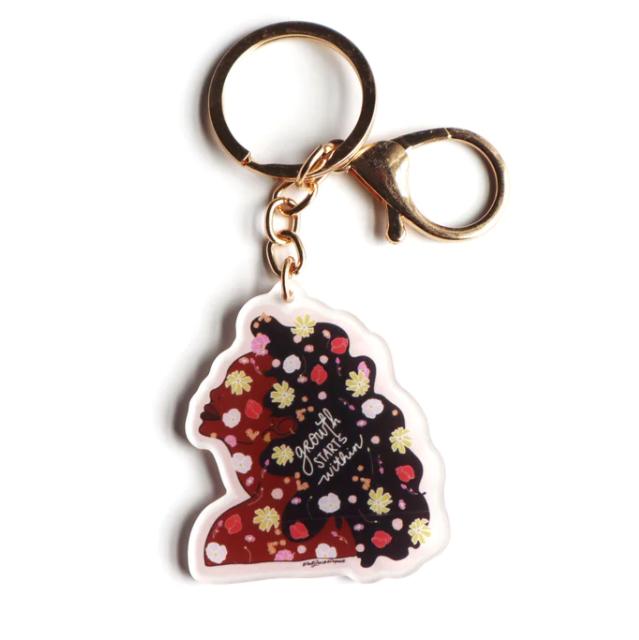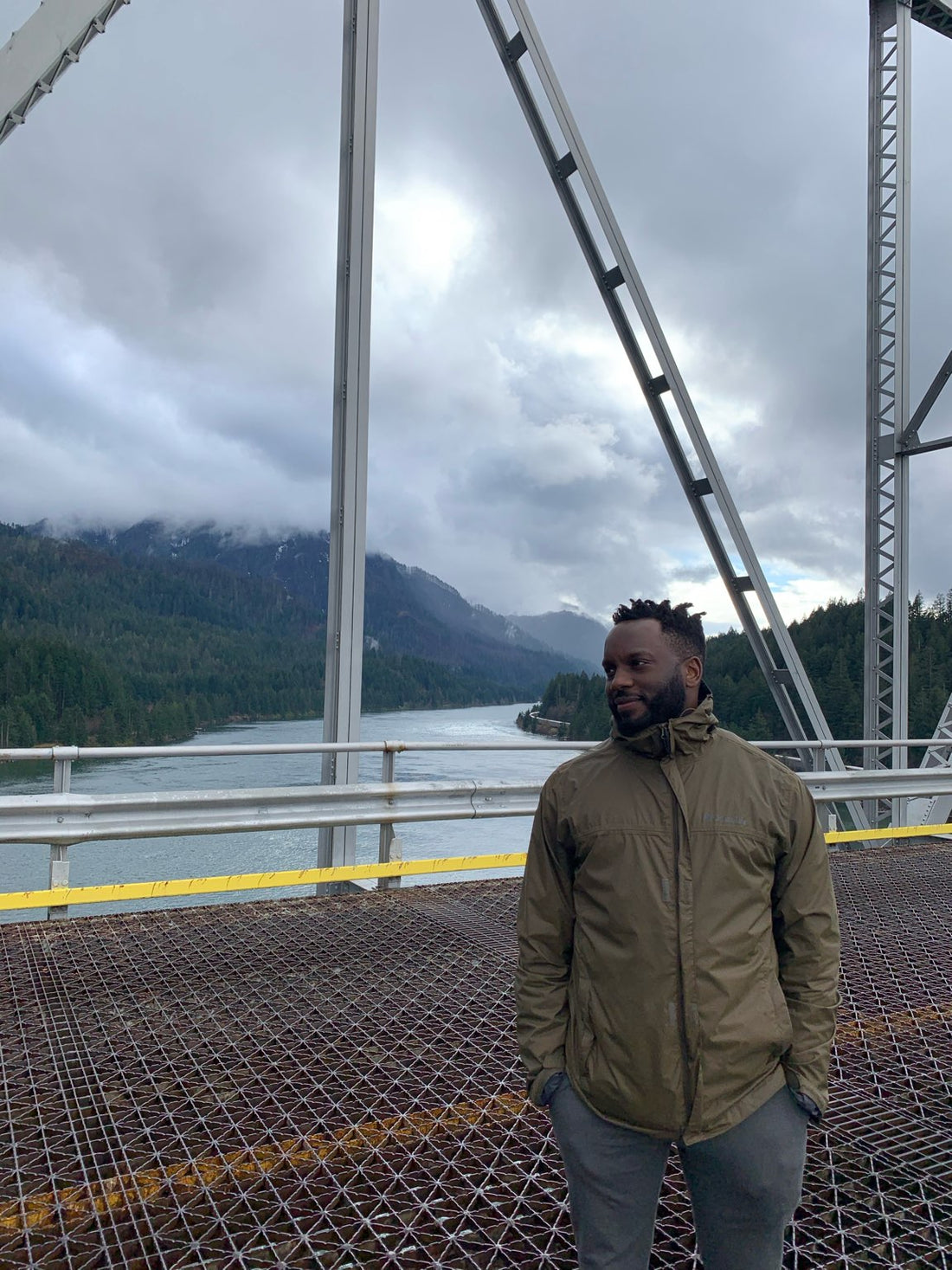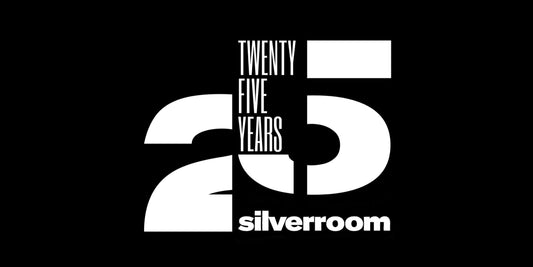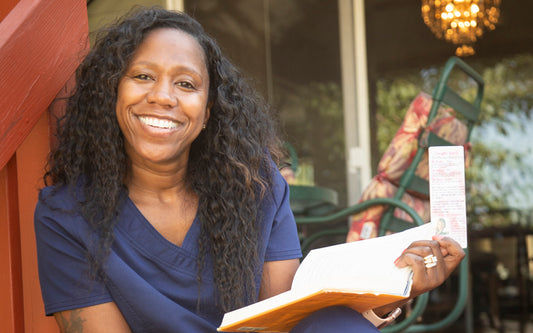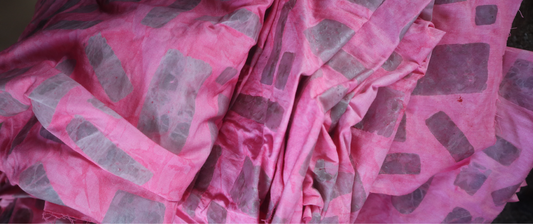I’m happy to finally sit down with this piece for The Silver Room, for a couple of reasons:
The first being, I am quite far from Chicago, and have been for at least eight months. In July 2020 I relocated to Eugene, Oregon to pursue—and mark my words, finish— a PhD in geography. I was here for six months by myself until my partner Christina was at last able to complete her moving process. Thus, writing this blog for The Silver Room takes me back to my home—at least for the time being— because I do miss it. Oregon is a strange place with as many great aspects as it has flaws. But compared to Chicago it’s a different world. Granted, you could argue that any place compared to Chicago is a different world. Nevertheless, having Christina here certainly grounds this whole situation; I often call her the Queen of Chicago. I’m a person who is very evidently from Chicago—but she is encyclopedic. There are few people I’ve met who wear home on their sleeve as boldly as she. We are here, but at least within the confines of our space we are there.
So, in speaking of “space”, “here”, and “there”, the other reason I’m happy to sit down with this essay is to talk about my work as a geographer, and why it matters.
Something I’ve been meaning to attempt, for at least three years now, is to talk about my career as a geographer in the context of my career as a producer/beatmaker in Chicago. The connection between the two is not an intuitive one and I’ve had many folks ask me, “What is it that you actually do?” I’ve had many more simply glance emptily at me upon mention of this “other” aspect of my life.
On otherness; I’ve been making beats for 16 years now, and have been a professional student for almost five, yet I still struggle to consistently wield the confidence necessary to be both in each space. I think many folks reading this via The Silver Room probably know me as Sev Seveer already, so this is a great chance for me to go off on a “different note” as André 3000 once said.
So, geography:
In grade school you may have attained the ability to recite the 50 U.S states in alphabetical order; in high school you probably took an A.P Human Geography course; and as an adult you might be dependent on Google Maps because you are bad at geography; these are the usual responses I get when I talk to folks about what I do. We typically understand geography in the context of sovereign boundaries (borders), cities, the nation (countries and their ideologies), federalism (autonomous constituent political entities, i.e., states). We understand geography as travel, places, passports.
Although it’s unfortunate, it more broadly reflects the relegation of geography as a field, particularly in the United States. Indeed, in other parts of the world geography is respected as a [sic; gendered language] “mother-discipline” that is fundamental to all others.
I like to think that’s a valid claim, and it’s what I try to communicate to folks when they sarcastically ask if I read compasses for a living.
The truth is, everyone knows geography, and no one is bad at it. And for the most part we over-assume what it means. Geography is, fundamentally, the study of where things are in relation to other things. “Things” can be processes, people, rivers, wildlife, patriarchy, racism, violence, colonialism, pollution. You name it. I was once at a conference and deadass saw a quantitative analysis of the spatiality of Pitbull lyrics. “Mr. Worldwide” always raps about where he is getting money; this professor and their research assistant wanted to graph it. And with that said, even the word “deadass” has a geography, and Chicago is outside of it. It’s goofy to say “deadass” in Chicago.
Also I do read compasses for a living.
Geography is understanding how different community record stores across Chicago carry catalogs that may or may not be correlated with the collections of residents in each respective area. Just the same, geography is understanding how Black teens on the Southside died for years in cross-town ambulances to the Northside due to gun violence, because the University of Chicago Medical Center refused to incorporate an adult trauma unit— that’s epidemiology, the combination of geography and public health.
Almost everything is everywhere, and therefore almost everything is geography.

How did I get here?
In 2016 I applied to graduate school at Northeastern Illinois University, and enrolled at the Carruthers Center for Inner City Studies. I hadn’t been in college since 2010, when I received my B.S in journalism from the University of Illinois at Urbana-Champaign. My most formative years as a Chicago-based producer came during that 2010-2016 period. I had on and off stints of being a full-time artist, but eventually came to a point at which I needed to protect my love, and skill, for beatmaking. I’ve always been more comfortable with one foot in the game and one foot out, and I think my music has been better for it. In terms of opportunity, it’s likely that this mentality has cost me— e.g., I’ve never been on an official tour. However, I like to think the fact that I’m still releasing records after nearly 20 years is a testament to my essential maxim—one of self-preservation— to never overdraft the “bank” of ingenuity to such an extent that I am “creating creativity” to break even.
In any event, I enrolled at NEIU and began a master’s degree in Inner Cities Studies, basically urban sociology. I quickly took interest in urban planning, political economy, and the actual mechanisms that underlie neighborhood change. In Chicago we talk a lot about the ills of gentrification, but it was grad school that really helped me to understand—and articulate—the actual math, and particularly a sort of “spatial math” if you will, that perpetuates these processes of neighborhood change. It is economics, real estate, racism, capital accumulation, empire. Gentrification is measurable and predictable. And it is all fundamentally built into what we take for granted every day.
I was biking from the Southside to the Northside to seek assistance from a professor and eventually close mentor— who persuaded me to transfer into his geography department and save money on tire innertubes, as he saw that I was already doing geography in a program that didn’t quite center it as a focus. I did that in 2017 after one semester, effectively breaking ground on my eventual path to Oregon, where I was accepted in March of 2020 shortly after graduating from NEIU with my masters in geography and environmental studies.
Beatmaking vs. Geography
I’ve always taken a scholarly approach to beatmaking, even before working in academia, and I’ve been called cerebral when it comes to my fidgeting, nitpicking technicality on the MPC 2000xl and SP-303/404. This is mostly by homies who clown me for being obsessive, taking so long to make beats, and often requiring silence in the lab, but I really do believe that there are theories, schools of thought, and contested discourses in beatmaking just as there are in economics, physics, art history, social work, or geography. I guess the same is true for all artforms, but I am biased in my belief that beatmaking is a unique craft in its own lane at the intersection of jazz, engineering, superstition, and the intrinsic competitiveness of hip-hop culture. Personally, I believe these to be the four elements of beatmaking.
I think my tendencies as a beatmaker mirror my tendencies as a geographer.
Human geography studies the movement and location of people and cultures, and how we experience or negotiate the world through time, space, and the social constructs we build.
Physical geography studies the formation and spatiality of landscapes and Earth processes—rivers, forests, volcanoes, weather, climate.
Generally—and to its detriment— the field of geography is split very clearly between these two areas. Human geography is often regarded as soft science while physical geography is celebrated as STEM. The former understands the impact of politics, power, and structure. The latter focuses on the rigorous measurement and quantification of our planet (and other planets), and strives for validity.
My place as a Black man in the world—from Chicago, in a colonial state, as a descendant of jazz and blues music— all of that is relevant to my life and there is spatiality to it. I am a human but I also defend my humanity and face the prospect of having to qualify it on a daily basis, wherever I am.
Just the same, we live in a physical world that we change every day. We need to use science to account for and understand that change in a way that allows us to design and build solutions. Ideally, those solutions will be toward equity and social justice. Often, they aren’t.
Physical geography, such as flood science, helps to us to make better decisions about where to live, and who is at risk. On the other hand, human geography helps us to understand what things like “risk” or “science” even mean.
I believe the best work in geography takes both areas into account equally. The most unproductive work in geography treats them as mutually exclusive.
Geographic information systems (GIS), i.e., mapping software, are not very far off from Ableton Live, Pro Tools, Cubase, FL Studio, etc. Beyond being advanced software engines, they offer us a technical advantage in translating physical events and phenomena into communicable media, so that we can better articulate our interpretations of the world. This can be done honestly or dishonestly. Along with the technicality there is always an ethic, there is always a humanity.
What is my research?
Given my aforementioned interest in physical and human geography, there is perhaps no better combination of the two than the study of insurance.
Hear me out.
Insurance— but more broadly, risk management— is the quantification and subsequent adjustment to uncertainty. Whether it’s your car insurance premium or the potential impact of climate change on Lake Michigan, uncertainty is expensive. Consequently, the goal of insurance is to take steps to pay for that expense, or, change the behavior of the risk vectors (bad drivers, polluters). Even more important, however, is the charge of who or what is considered a risk, or at risk. We can start to understand that the science of risk management can be racialized, stratified by class, or follow along lines of coloniality and what we consider “developed” vs “developing” societies, whether the case is New Deal-era redlining policies that made it difficult for Black people in Chicago to insure their homes, Mexico City in 2017 after the Puebla Earthquake, or Kenyan farmers coping with extended drought in 2011. Towards the end of my time at NEIU, my research focused on the social, political, and power dynamics of flood model development, and how these factors influence what we know—or rather, what we think we know—about flood risk. I chose the University of Oregon to work with a professor whose work was the direct inspiration for my own. I applied to two programs; I was initially accepted to the City University of New York, but once that UO letter came in, along with the funding, it was a wrap!
Insurance and Policing
Since COVID-19 lockdown, the Movement for Black Lives uprisings, and my start at the University of Oregon, I’ve taken a new direction in my approach to insurance.
I’m currently studying the relationship between public finance, police misconduct, and risk management.
When police officers get sued for terrorizing Black and brown people and local governments decide to settle with families, in most large cities the costs are almost always covered by those cities and almost never by police officers. Furthermore, those costs are passed onto taxpayers and thus socialized. Despite our rare and temporary albeit bittersweet triumphs in civil court proceedings, which yield payouts to victims, we nevertheless foot the bill. The power to tax, which has few limits, creates a condition in which police officers have little to no relationship with the costs of their malfeasance; in insurance speak, this is known as moral hazard— which means that a person with their risks covered tends to act riskier.
Large cities typically self-insure, meaning they pay for risks with taxes to avoid the costs of carrying commercial insurance. As a result, activists have recently called for police officers to carry individual private insurance. The idea is that a private insurance market will have stricter policies than a self-insured government jurisdiction, because capital is allergic to inefficiency.
This change in research direction hits different because I feel as though I am studying to save my own life. Using a racial capitalism framework, I’m trying to show how cities normalize police misconduct via their budgeting practices, qualified immunity, and relationships with different types of insurance, and I aim to demonstrate the ways in which these practices vary geographically. Private personal insurance for police officers is a compelling idea, and a new market for insured police risk is undercapitalized and waiting to go mainstream. But at what cost? What do we stand to lose in turning to market ideology as a solution to state-sanctioned anti-Black violence, particularly given the well-observed role of so many markets as facilitators of anti-Black violence?
The Last Word…
Folks often ask me, “Why don’t you make a geography themed beat tape?”
I used to scoff at that idea, and defensively explain why I don’t need my life to culminate into one comprehensive project inclusive of everything I do.
As I’ve grown older and seen my logic leveled out a bit, I’ve realized my negative response was simultaneously, at least in part, a refusal to do the exact work I’ve wanted to do. I think I just need to do it on my own terms. I’ve since given significant thought to how that type of project might sound, and I’ve already started to lay the foundation. So, stay tuned for that!
But I think more than anything else, my music needs to do the work that I do as a PhD student—as a critical geographer. I need my approach to continue to be a theory of beatmaking. I need it to be technically sound and demonstrate a thorough breadth of field knowledge, as well as reflect my scholarship of those who came before me and influenced my unique contributions to this craft. No matter how raw— for it to make sense to me, beatmaking must be an inquiry, and it must push at least one person to do better. Whether for themselves or for the world.
LISTEN TO SEV SEVEER'S MUSIC HERE.
About Sev Seveer:
Sev Seveer is a hardware beat maker from Chicago. He is a member of Chicago-based Push Beats collective and has been featured at SXSW, New Media Art and Sound Summit (Austin), Beat Cinema, the Toledo Museum of Contemporary Art, Exploded Drawing, the Chicago Reader, the Chicago Tribune, and the Northwest Indiana Times.
Sev Seveer's work on the boards as a producer can be found on projects by Defcee, Green Sllime, Saba, Benjamin Earl Turner, Joseph Chilliams, AMS King of the Nerds, and The Highest Low. He has released physical LP's with a number of imprints including Beats of All-Nations, JUSTGOODBEATS, Jugo and Rada Records, Cold Busted Records, High Risk Collective, and Dark Matter Coffee.
He currently resides in Eugene, Oregon where he is a PhD student in the University of Oregon Department of Geography
sevseveer.bandcamp.com
